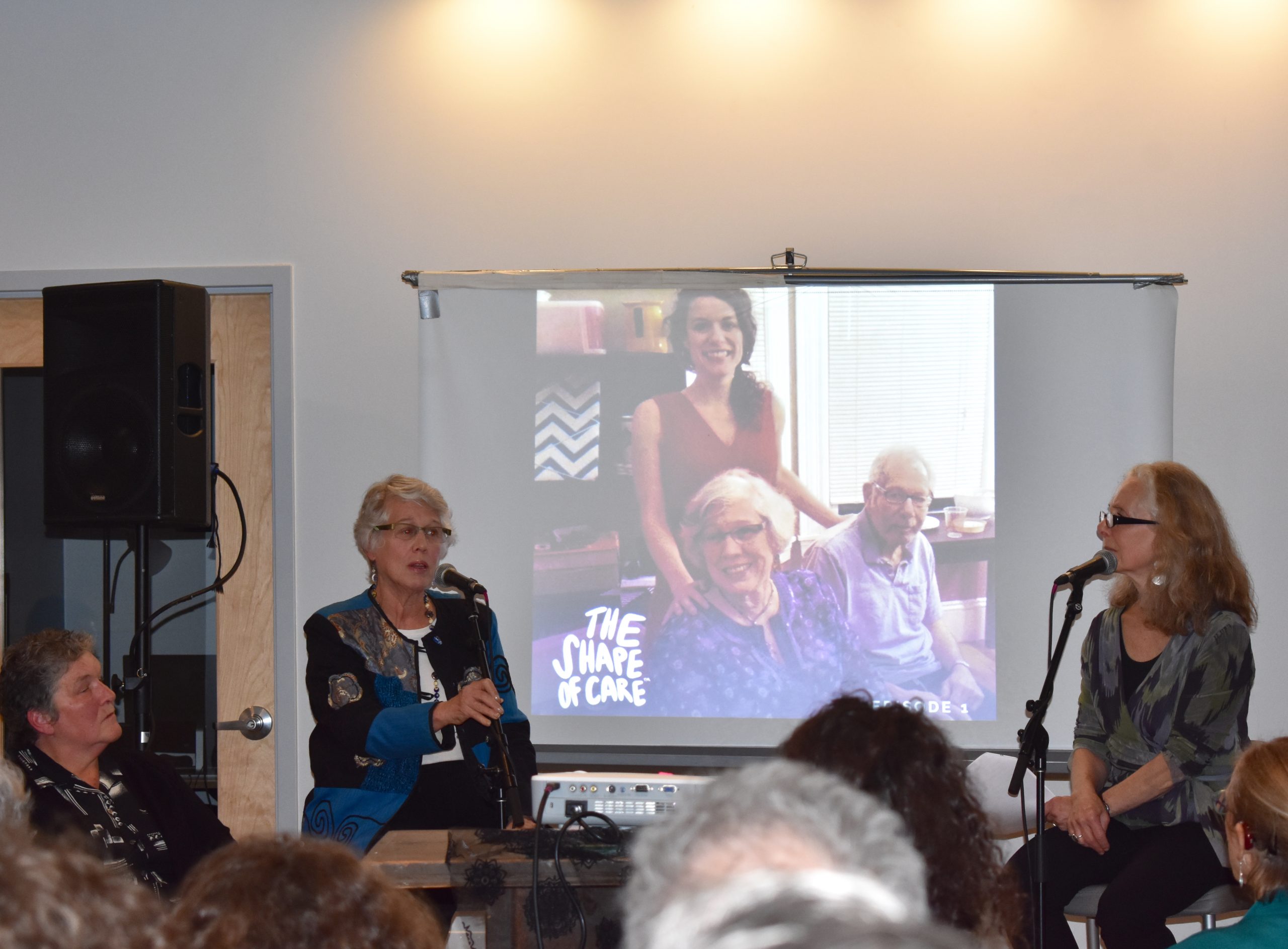One of my friends is still good friends with her ex-husband. I’ll call him Walter. Over the years, I grew to admire how they handled their divorce with their two children. Their priority was the kids, and despite the rancor in their marriage, they were excellent co-parents. The “kids” are now in their early forties, and both are happy and healthy. About ten years ago, Walter was the primary caregiver for his frail elderly mother. She was doing okay, despite a panoply of chronic conditions. And then she fell, the number one reason why people move into facilities. Without doing a lot of research, Walter moved his mother into a nursing home. My friend was appalled at Walter’s choice, because the facility had been cited for safety concerns. Here’s what she told me. “When I heard where he had put his mother, I called him right away and told him ‘Your children are watching’.

That phrase stayed with me over the years, particularly when my sister and I were caring for our father from afar. I live in Boston, and she’s in Pittsburgh. He insisted on living alone into his late-90s, in his small home in Buffalo, New York. But we worried about him being alone. We had visited several facilities, starting with an independent living facility with ties to a local university. We also visited a continuous care facility, and an assisted living facility. Some of these options were located in our cities, near our homes, and others were near him. But he adamantly rejected all of them… until his health worsened, culminating in a near fatal fall. At that point, there was no other option; and he moved into an assisted living facility near his home. My father died nearly ten years ago, and as I continue this path of work on caregiving, I now appreciate the time my sister and I took to educate ourselves about options and share them with our father. At one point, he told us that if he needed a caregiver, he wanted Barbara, the incredible woman who had cared for one of his brothers. And that’s who was with him in the last year of his life.
These days, I think about how I want to age. I know from experience, as well as from the literature, that health and well-being is tied to staying engaged with activities that have personal meaning. I also know from observing my father that as he got really old, having younger friends helped him maintain his engagement in the world. The older you get, the more losses you experience. Having younger friends – especially when these connections are linked to shared interests or projects – gives you a better chance of not being alone with your older friends are “gone”!
I also think about what my friend told her ex-husband. I know my daughter was watching, as I made choices in caring for my dad, her beloved grandfather… And I was watching too! The caregivers I know and talk to are doing their best at helping their loved ones live their lives with dignity. They’re making the best choices they can make, given the available options, given their finances, given what they know and are able to learn about how to navigate the system. But I also believe we can do better. I believe that all people deserve high quality care as we age, whether it’s support in an individual’s home, or in a communal living situation. I don’t think anyone would say they hoped to live their last years of life in a nursing home, or that they hoped that their children or partner or friends would be scrambling to find us quality care.
Being a caregiver – to whatever degree we’re involved in this work – opens our eyes to what currently exists and makes us want more. In a recent article in the Washington Post,Tara Bahrampour writes, “Seeing a parent’s body or mind break down can inform decisions about one’s own old age, from the practical — finding a house on a single level, installing grab bars, touring living facilities — to the philosophical, such as learning empathy, shoring up social ties or accepting one’s own limitations.” Bahrampour quotes Denise Brown, who founded CareGiving.com in 1996. “When you’re a family caregiver, you’re not in denial about death and aging and what happens when we get older,” she said. “We know that we’re not going to live forever — we live it. It’s not necessarily immediate for most people, but we live it.”
I wholeheartedly agree. So now is the time to think about what we want for our nation’s long-term care policy. Maybe we’ll luck out and be in perfect shape until we drop. But that’s unlikely! How do you want to live when you get old and in need of care? And what kinds of policies do we need that will make that possible?
And with that, I look forward to hearing from you!
Warmly,
Mindy
PS – The photo below is from the launch event for The Shape of Care. Pictured in the middle is Laurie Sheridan (Episode 1). Laura Barr (Episodes 4 and 5) is sitting on the left, and I’m on stage to Laurie’s right. Behind us is a photo of Laurie with her husband, Ira, who has Parkinson’s Disease, along with their daughter, Betheny.
